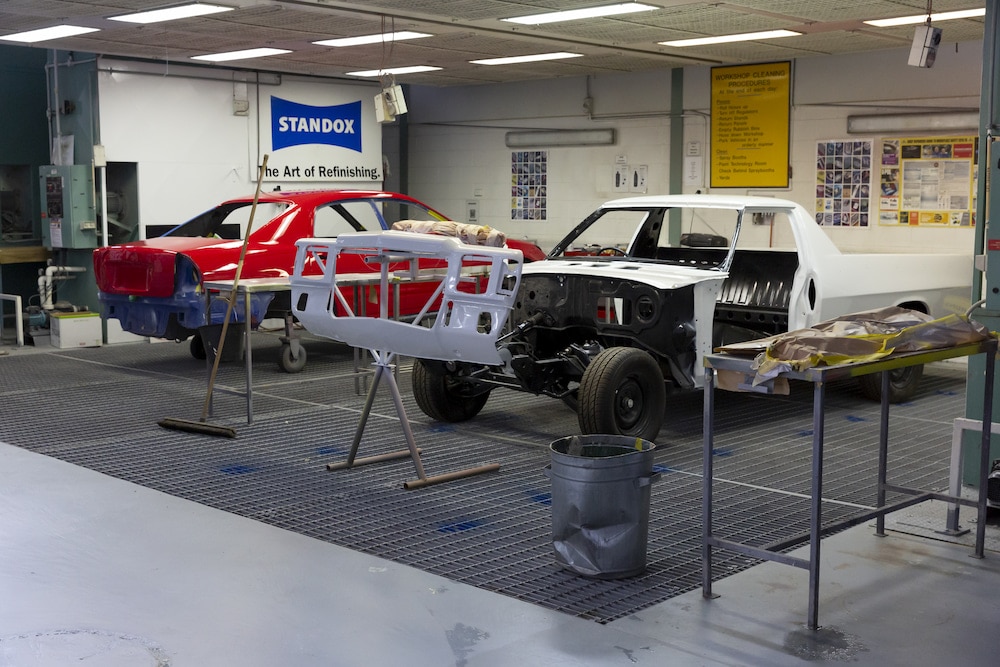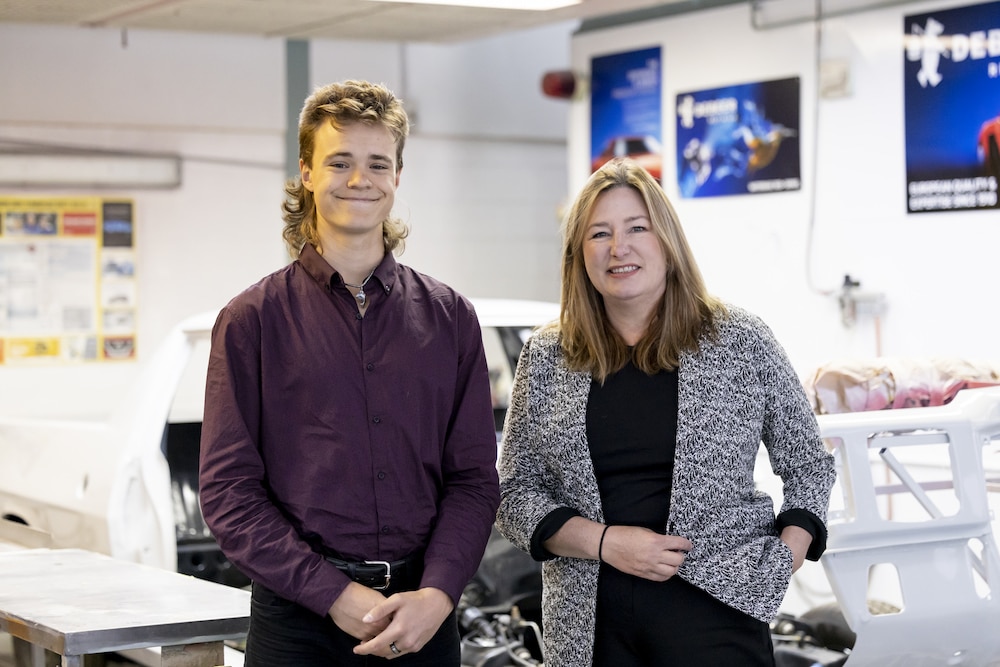Once a week, 16-year-old Charlie Steer puts down his schoolbooks and picks up car repair tools instead.
He is undertaking an automotive trades apprenticeship at CIT Fyshwick – one of 50 public school students taking part in Head Start, an ACT Government pilot program where they can trial a trade before they finish their formal education, education minister Yvette Berry explained.
The Australian School-based Apprenticeship (ASbA) initiative provides a tailored school-based apprenticeship and traineeship program that matches a student’s job interest with a local business in need of skilled workers. Education ACT pays the students’ work experience, and supports them to finish both high school and their ASbA, taking three years if they choose.
“This gets people into a trade, but also allows them to have a ‘head start’ with their qualifications and their career, as well as their Year 12 certificate,” Ms Berry said.
“Getting real life experience can be the best way to set students up for their careers. This program could be the perfect launching pad to pave the way for many young people across the ACT.”
“I don’t really know what I want to do at the moment, so having a broad spectrum of what I could do is really beneficial,” Charlie, who is in Year 10 at Wanniassa High School, said. “I get to see different parts of the world, different careers.
“In the future, I want to have more of a physics-based career, maybe not something in the auto industry – but if this goes any further, and I seem to enjoy it more, then I’m more than happy to take this on as a full career.”

After two years of COVID and interruptions to education, young people are uncertain what careers they want, Ms Berry said. Many apprentices move on after their first year, or decide to do something else. Meanwhile, employers are desperate for workers, and want workers to stay.
“There’s such a shortage for all trades, but automotive and smash repairs is really short,” Charlie’s CIT mentor, Adrian Gibbons, said.
“All employers are screaming out for new apprentices and new employees. The feedback we’re getting from them is that they need more apprentices, but they want apprentices that they can train, mould, and keep long-term.”
The Head Start program supports apprentices to remain in their chosen trade.
“They’re not jumping in with two feet straight into a full apprenticeship with all the responsibilities and pressures of being a full-time employee,” Mr Gibbons said. “They’re coming here and getting what we’re delivering them, plus picking up what the full-time apprentices are doing as well, and making connections.”
He teaches automotive and metals, and spray painting for automotive smash repairs. A group includes the three stages of apprentices, both mainstream and ASbA, from almost self-reliant Stage Threes to novice Stage Ones – what Mr Gibbons terms ‘self-paced flexible delivery’.
A smaller cohort of Stage Ones can get better time from their teacher than a whole class would, Mr Gibbons thinks. The lower-level entry units cover the first six to 12 months in a smash repair shop: safety, tools and equipment, basic priming and preparation.
Charlie hopes to learn basic car body repair skills, “so that when I do have my own car, later down the line, if it gets scratched or dinged or bumped up, I can somewhat try to repair it myself with some level of knowledge, rather than just putting a plunger and hot water on it. I want a good knowledge of how to repair it, but not screw it up even more!”

Five industries are taking part in the program: besides automotive trades, the others are hospitality, light automotive, construction / carpentry, and light metal fabrication. (Ms Berry plans to expand it to other trades.)
These industries were chosen because they experienced workforce shortages even before COVID, Ms Berry said; they have had trouble recruiting young people, and getting them to stay in the trade from start to finish.
When developing the Future of Education Strategy, employers told the ACT Government they wanted “young people who were prepared and ready to work, rather than people just coming out of school and picking a career,” Ms Berry said.
“This program gets people ready, and supports them while they’re there.”
The ACT Government has committed $2.2 million over three years (to 2023–24) to implement the program.



